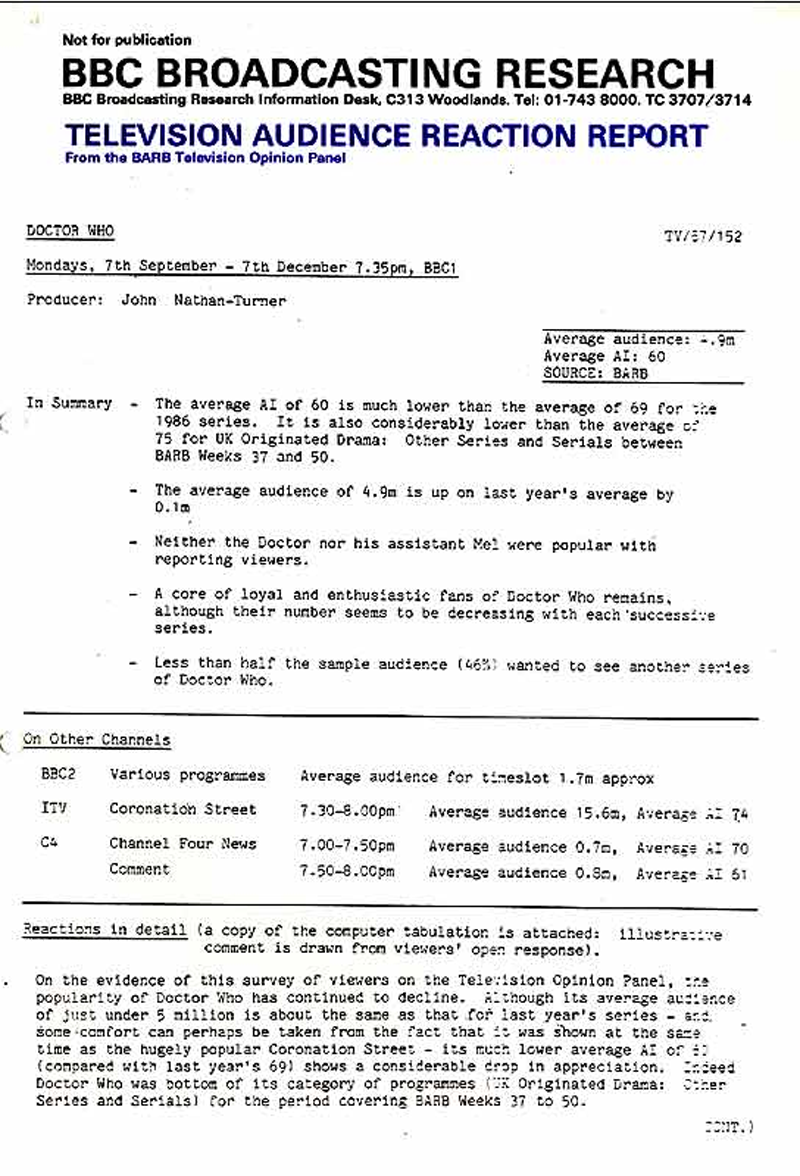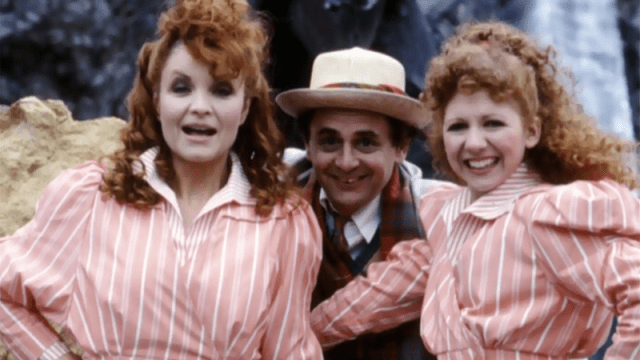Sylvester McCoy’s era on Doctor Who has always gotten a bit of a bad rap. After all, it’s the period of the show that eventually saw Doctor Who go on hiatus for decades. With the gift of hindsight, it’s easy to see the good and fascinating things this era of the show did, but apparently audiences at the time really, really couldn’t.
The Doctor sees double (ostensibly) in a photoshoot for “Time and the Rani”, Sylvester McCoy’s debut story as the Doctor. Image: BBC
The BBC Archive’s wonderful digital collection of documents and footage from the corporation’s long history includes a whole section dedicated to classic Doctor Who, charting everything from the show’s earliest production memos to press about incoming Doctors and, yes, the BBC’s own internal viewer reaction reports.
This February 1988 report from the archive, recently highlighted by Den of Geek, covers viewer response to Sylvester McCoy’s first four storylines as the Doctor – Season 24’s “Time and the Rani”, “Paradise Towers”, “Delta and the Bannermen”, and “Dragonfire” – and as a metric for the BBC to see if a new incarnation of the Time Lord could revitalise the flagging show, well… it isn’t a pretty picture.

The first page of the February 1988 TV Audience Reaction Report for Doctor Who. Image: BBC (BBC Archives)
Although viewing figures were slightly up, indicating a stable, dedicated group of fans were still watching, the review concludes that growing public discontent with Doctor Who was only getting stronger. The show’s Audience Appreciation Index numbers – an average rating of popularity on a 1-100 scale – were languishing at an average of 60, well below the average of 75 at the time in UK, and even sharply down from the previous season’s average of 69.
Popularity figures for the Seventh Doctor and his companion Mel were equally dismal, at 54 (noted as a sharp rise over the course of the four stories from an even worse score of 46) and 34 respectively. Less than half of the survey respondents actually wanted another season of Doctor Who after the current one had aired!
Nothing in the report is particularly heartening, but perhaps its cruelest barbs are saved for Bonnie Langford’s performance as Mel, the hyperactive, fitness loving and extremely loud final companion of the Sixth Doctor held over for the Seventh Doctor’s early stories. Time has been less kind to Mel than it has been to the Seventh Doctor – she’s still derided as one of, if not the worst, companion in Doctor Who history – but even then, this viewer report is especially damning:
Bonnie Langford, who played the Doctor’s assistant Mel can only be described as unpopular with respondents. Indeed 56% of respondents who answered a questionnaire on the Paradise Towers story wished she had been eaten — as seemed likely at one point during the course of this adventure. Her summary index rating of 34 compares unfavorably with with the 47 she received at the end of the 1986 series. Both figures, it should be noted, are extremely low.
Ouch. Langford would leave Doctor Who at the conclusion of “Dragonfire” to be replaced by Sophie Aldred’s Ace, who would go on to be hailed as a much more favourable character, and is now seen as an early prototype of the more fleshed out, well-rounded companions we’d see with Doctor Who‘s eventual return to screens in 2005.
Reading it now with the awareness that Doctor Who went on a 16-year hiatus just a year after this report was written, it’s hard not to see this as one of the earliest signs the BBC had, internally, that the show was nearing its end. At the time it must have made for grim reading, and even now it still does a bit, but at least we know that the show eventually made a comeback – and still lives on, 13 years after its lauded return.
That’s the thing about Time Lords, really: They all change every once in a while, in big ways and small, but their stories can go on forever.
If you want to read the full report, and check out more Doctor Who content from the BBC Archives, you can check out the “Changing Who” section here.
[Den of Geek via Syfy Wire]
